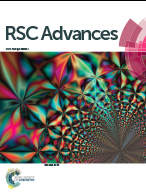 A journal has retracted a study after an institutional investigation concluded that it was riddled with misconduct.
A journal has retracted a study after an institutional investigation concluded that it was riddled with misconduct.
According to the retraction notice in RSC Advances, the first author submitted the paper without the knowledge of the other two co-authors, and the paper was falsified, fabricated, and plagiarized. The notice cites a probe at the University of Tennessee (UT) at Knoxville — where all three listed authors are based — that concluded the study’s findings were invalid.
We asked a UT spokesperson if the first author, Sammy Eni Eni, was still based at the institution, and received this response: Continue reading Chem paper “the product of intentional, knowing, or reckless falsification, fabrication, and plagiarism”




